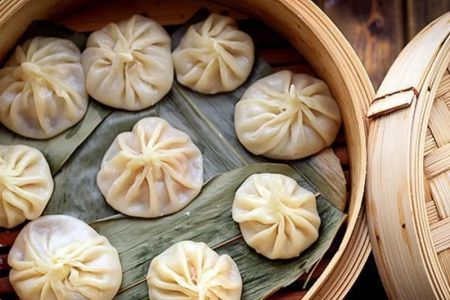- 1-understanding-the-chinese-catering-market-in-the-usa
- 2-developing-a-solid-business-plan-for-catering-success
- 3-licensing-and-health-regulations-you-need-to-know
- 4-choosing-your-menu-and-sourcing-ingredients-effectively
- 5-marketing-and-building-your-customer-base-strategies
- 6-scaling-your-business-and-managing-operations-smoothly
1. Understanding the Chinese Catering Market in the USA
Starting a Chinese catering business in the USA requires first understanding the market landscape. Chinese cuisine is one of the most popular and widely consumed ethnic foods across the country, with a diverse customer base ranging from families and corporate clients to event planners and cultural celebrations. However, the market is competitive, so distinguishing your catering service is crucial.
Successful businesses often identify niche markets such as vegan or gluten-free Chinese dishes, regional specialties, or fusion menus that cater to local tastes. Knowing your target audience and their preferences is fundamental to crafting a compelling catering offer.
For example, a New York-based entrepreneur found success by focusing on authentic Sichuan dishes tailored for corporate lunches, gaining a loyal following by emphasizing spice level customization and fresh ingredients. This story illustrates the value of market research and specialization when launching your Chinese catering business.
2. Developing a Solid Business Plan for Catering Success
A detailed business plan is the backbone of any successful catering venture. Your plan should outline your mission, services, target market, pricing strategy, startup costs, and financial projections. Additionally, a marketing plan describing how you will attract clients and build brand recognition is essential.
Many aspiring caterers underestimate the importance of budgeting for equipment, licensing fees, insurance, and initial food inventory. Including these costs upfront helps prevent surprises. Furthermore, consider how you will manage staffing, logistics, and customer service as your business grows.
Expert advice suggests incorporating contingency plans for seasonal demand fluctuations and unexpected expenses. A clear, realistic plan provides a roadmap to navigate the challenges of starting a Chinese catering business in the USA.
3. Licensing and Health Regulations You Need to Know
Operating a Chinese catering business legally means complying with federal, state, and local regulations. Food safety and health standards are paramount. Obtaining the necessary licenses, such as a food service permit and business license, is mandatory before serving clients.
Health inspections ensure your kitchen and preparation methods meet hygiene standards. Depending on your setup, you may need to rent a commercial kitchen space or upgrade your home kitchen to comply with regulations. Additionally, liability insurance is highly recommended to protect against potential claims.
Researching and understanding the licensing requirements in your specific state and county early on saves time and ensures smooth business operations.
5. Marketing and Building Your Customer Base: Strategies That Work
Effective marketing transforms your Chinese catering startup into a thriving business. Leveraging social media platforms like Instagram and Facebook to showcase beautiful food photos and customer testimonials helps build awareness. Participating in local food festivals or community events provides valuable exposure.
Networking with event planners, corporate offices, and cultural organizations expands your reach. Offering promotions or referral discounts encourages repeat business and word-of-mouth marketing.
Customer reviews and consistent quality are vital to gaining trust. Many successful caterers invest in a professional website and online ordering system to streamline client interactions and increase bookings.
6. Scaling Your Business and Managing Operations Smoothly
As your Chinese catering business grows, efficient operations management becomes increasingly important. Hiring and training reliable staff, maintaining inventory control, and scheduling deliveries require careful planning. Investing in catering software can automate many tasks and improve accuracy.
Expanding your services to include corporate catering, weddings, or meal prep subscriptions can diversify income streams. Some caterers also collaborate with local restaurants to supply bulk orders, boosting revenue.
Maintaining high standards, fostering customer relationships, and continuously innovating your menu will support sustainable growth and long-term success.
Enhance Your Catering Business with Quality Products
For entrepreneurs looking to source the best ingredients and catering supplies, Chinese Food offers a curated selection of premium products and services. Access trusted vendors and expert recommendations that can elevate your menu and streamline operations. Utilizing these resources can help new and established Chinese catering businesses thrive in the competitive U.S. market.







